The United States has a long tradition of offering refuge to those fleeing persecution and war. With support, refugees go on to thrive and contribute to their new countries in many different ways. Meet some of the well-known artists, ambassadors, CEOs and other luminaries who were once refugees.
Albert Einstein
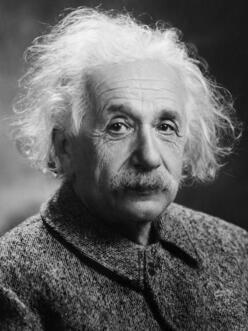
“Peace cannot be kept by force; it can only be achieved by understanding.”
The physicist Albert Einstein arrived in America in 1933 after he and thousands of other Jews fled persecution in Nazi Germany. That year, the Nobel laureate and humanitarian called for the founding of the aid organization that was to become the International Rescue Committee.
Although much of the world greeted the Nazi takeover with indifference or apathy, some people were alert to what was happening and the threat it represented. By July 1933, a new rescue committee of 51 concerned individuals had swung into action, galvanized by Einstein.
Freddie Mercury
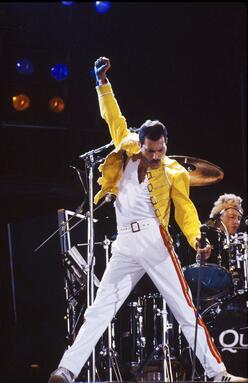
“I love the fact that I can make people happy, in any form. Even if it’s just an hour of their lives, if I can make them feel lucky or make them feel good, or bring a smile to a sour face, that to me is worthwhile.”
As the frontman of the rock band Queen, Freddie Mercury (Farrokh Bulsara) is known as one of the most innovative and accomplished musicians of all time. Freddie was born in the British protectorate of Zanzibar, now part of Tanzania. His parents were Parsi immigrants from India. Freddie spent much of his childhood in India, where he attended music school. It was there his friends began to call him Freddie, a name his family also adopted.
In 1964, the family left for England to escape the violence of the Zanzibar Revolution against the island’s Arab and Indian minorities. Moving to Middlesex with his family, Freddie, then aged 17, started a new life. Six years later, he befriended his future Queen bandmates, drummer Roger Taylor and guitarist Brian May.
M.I.A.

“As a Sri Lankan that fled war and bombings, my music is the voice of the civilian refugee.”
Rapper and activist M.I.A. (Mathangi Arulpragasam) was just nine years old when she fled war-torn Sri Lanka with her family and settled in England. Those experiences inform her music and art, which draw attention to the struggles of refugees and immigrants. She said her debut album Arular was created to “make every refugee kid that came over after me have something to feel good about.” In 2015, she made headlines for her self-directed music video, “Borders,” which follows refugees on a treacherous journey to find safety.
M.I.A. has contributed to humanitarian causes that include education for children in Liberia, a country recovering from a 14-year civil war.
Marc Chagall
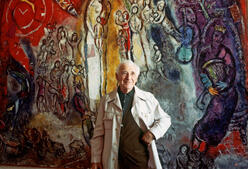
“Despite all the troubles of our world, in my heart I have never given up on the love in which I was brought up or on man’s hope in love.”
Born in Russia, artist Marc Chagall moved to France in 1910 to study painting. By 1941, he was among 1,500 refugees on the Nazis’ “most-wanted” list who were spirited out of France during a rescue effort by the organization that became the IRC.
A pioneer of modernism, Chagall is known for his poetic, colorful, and figurative paintings, earning him recognition as “the quintessential Jewish artist of the twentieth century.” He later contributed a print to the IRC’s “Flight” portfolio to help raise money for our humanitarian work.
George Soros
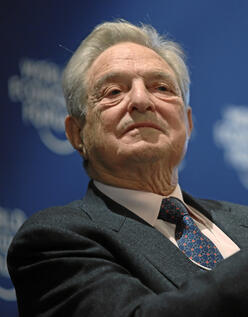
"I chose America as my home because I value freedom and democracy, civil liberties and an open society."
Investor and philanthropist George Soros was born in Hungary in 1930. After surviving the Nazi occupation of WWII, he emigrated to England and then to the U.S., where he launched his own hedge fund. As one of the richest people in the world, Soros used his fortune to launch the Open Society Foundations, a network of organizations that supports human rights in more than 100 countries.
He received the IRC's Distinguished Humanitarian Award in 1993, and our Freedom Award in 2013. In 2016, Soros pledged up to $500 million to support refugee-run businesses and other initiatives that help refugees.
Madeleine Albright
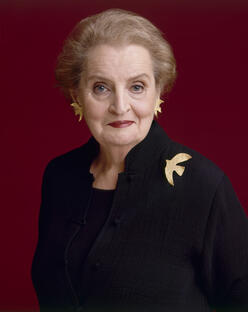
"I think it enriches our country to have refugees here."
In 1997 Madeleine Albright became the first woman to be appointed U.S. Secretary of State. The daughter of a Czech diplomat, she was a refugee during World War II in England, where she lived through the Blitz. Her family returned to Czechoslovakia after the Nazis were defeated, but escaped to the U.S. after the Communist takeover of their country. She arrived on Ellis Island in 1948 at age 11.
Albright was honored with the IRC's Freedom Award in 1998 for her "extraordinary service to humanity, freedom and the cause of refugees." She is currently an IRC Overseer.
Elie Wiesel
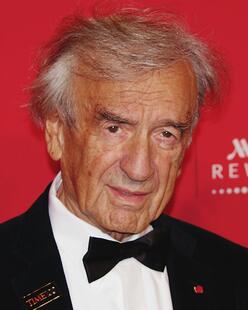
“Wherever men and women are persecuted because of their race, religion, or political views, that place must—at that moment—become the center of the universe.”
Elie Wiesel was born in what is now Romania. As a teenager he survived the Nazi concentration camps of Auschwitz and Buchenwald and went on write books that bore searing testament to the slaughter of more than 6 million Jews in World War II. Indifference, he said, was the epitome of evil. The author, educator and political activist received the Nobel Peace Prize in 1986.
In 1987 Wiesel was honored with the IRC's Freedom Award. He was a longtime IRC Overseer.
Gloria Estefan

“You've got to believe. Never be afraid to dream.”
Gloria Estefan fled the Cuban Revolution with her family in 1960 after the rise to power of Fidel Castro. They arrived in the U.S. when she was just two years old. Her father was a political prisoner after the Bay of Pigs invasion and later served in the U.S. Army in Vietnam.
The seven-time Grammy Award-winning singer and songwriter is known for her activism and philanthropy as well as for chart-topping hits. Estefan and her husband Emilio have received the United States' highest civilian honor, the Presidential Medal of Freedom.
Sergey Brin
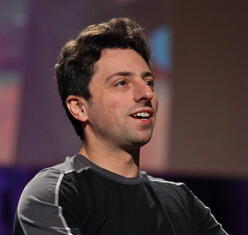
“I want to be looked back on as being very innovative, very trusted and ethical and ultimately making a big difference in the world.”
Google co-founder Sergey Brin was born in Moscow in 1973. When he was six years old, his family emigrated to the U.S. to escape the growing anti-Semitism in the Soviet Union. At Stanford University he met fellow computer science doctoral student Larry Page. Together they developed a search engine that would grow into an internet giant.
In November 2016, Brin was ranked No. 13 on Forbes' "Billionaires" list. Brin's and Google's philanthropy includes support for the cause of refugees.
Superman

“I'll always be there. Always. It's not the powers. Not the cape. It's about standing up for justice. For truth. As long as people like you are out there, I'll be there. Always.”
Rocketed to Earth from the dying planet Krypton, baby Kal-El was found by a Kansas couple who named the boy Clark Kent and raised him as their own. Discovering his enormous powers, they instilled in him strong moral values—and inspired him to become a hero.
Kal-El—Superman—was created by comic book artist Joe Shuster and writer Jerry Siegel, both the sons of Jewish immigrants. A universal icon, Superman is both an alien trying to help the planet that gave him refuge and an all-American boy fighting the never-ending battle for truth and justice.
Meet more famous refugees
- Josef Albers, Artist
- Hannah Arendt, Philosopher and Author
- Mikhail Baryshnikov, Dancer
- Max Beckmann, Artist
- Hans Bethe, Physicist and Nobel Laureate
- W. Michael Blumenthal, Former Secretary of Treasury, IRC Overseer
- Nadia Comaneci, Olympic gymnast
- Salvador Dali, Artist
- The Dalai Lama, Leader-in-exile and Nobel Laureate
- Peter Drucker, Author and Management Consultant
- Max Ernst, Artist
- Lion Feuchtwanger, Author
- Andy Garcia, Actor
- Alexander Ginsburg, Russian dissident during the Cold War
- Roberto Goizuetta, Former CEO of Coca Cola
- Walter Gropius, Artist
- George Grosz, Artist
- Andrew S. Grove, Chairman of Intel Corp., IRC Overseer
- Henry Grunwald, former Editor-in-Chief, Time Inc.,
- John Heartfield, Artist
- Thich Nhat Hanh, Zen Buddhist Master
- Wassily Kandinsky, Artist
- Henry Kissinger, Former Secretary of State, IRC Overseer
- John G. Kemeny, Computer pioneer and President of Dartmouth College from 1970-81
- Andre Kertesz, Photographer
- Oskar Kokoschka, Artist
- Madeleine Kunin, former U.S. Ambassador to Switzerland, former Governor of Vermont
- Mila Kunis, Actress
- Tom Lantos, U.S. Congressman (Calif)
- Fernand Leger, Artist
- Jacques Lipchitz, Artist
- Andre Masson, Artist
- Andre Meyerhoff, Scientist and Nobel Laureate
- Ludwig Mies van der Rohe, Architect
- Rita Ora, Singer
- Dith Pran, Photographer
- Gen. John Shalikashvili, former chairman of the Joint Chiefs of Staff
- Aleksandr Solzhenitsyn, Author